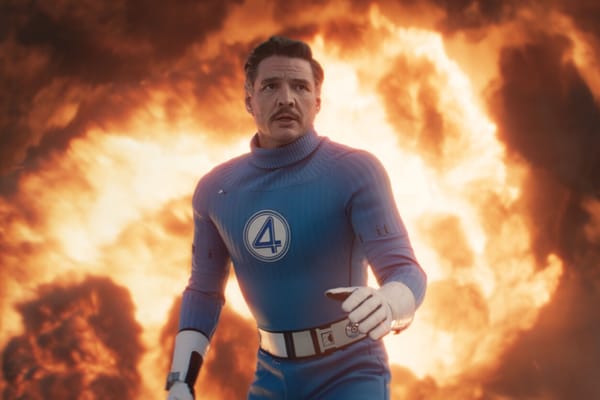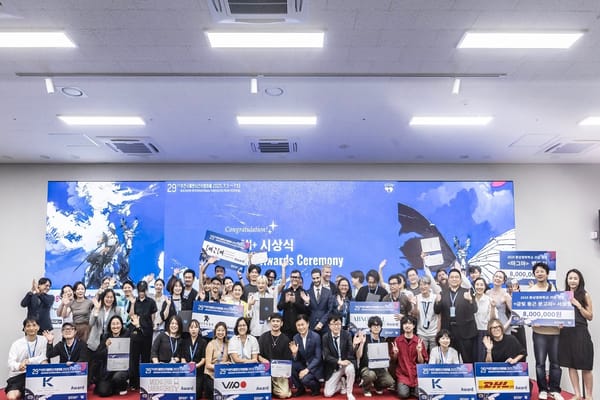VIEW FROM CANNES: The Year Of Amazon
As Amazon Studios is welcomed with open arms in Cannes, Streamlined looks at the company’s international strategy and how much longer it's likely to champion the theatrical window.

While Netflix was the talk of town at the Cannes Film Festival in 2015, this year it was Amazon Studios that owned the Croisette, but rather than frightening the established order, the digital giant was welcomed with open arms.
Heading into the festival, Amazon had five films in official selection – Woody Allen’s opening film Café Society; Jim Jarmusch’s Paterson and Stooges documentary, Gimme Danger; Park Chan-wook’s The Handmaiden; and Nicolas Winding Refn’s The Neon Demon.
During the Cannes market, the streaming giant splashed out on further festival fodder – acquiring North America rights to Asghar Farhadi’s late addition to competition, The Salesman, and Lynne Ramsay’s You Were Never Really Here, starring Joaquin Phoenix as a war veteran rescuing women trafficked into the sex trade.
Before the market was over, Amazon had also snapped up US rights to Australian comedy The Dressmaker, starring Kate Winslet, and reportedly boarded Mike Leigh’s upcoming period drama Peterloo. The company also recently teamed up with China-backed start-up studio STX Entertainment to bankroll an action comedy to be directed by actor-stunt coordinator Nash Edgerton and starring David Oyelowo and Charlize Theron.
While Netflix acquired worldwide rights to Wheelman, directed by Jeremy Rush and starring Frank Grillo, during Cannes, the company was keeping a much lower profile than last year when content chief Ted Sarandos was heckled for its potential to “destroy the film ecosystem in Europe”.
Indeed, Sarandos and Netflix CEO Reed Hastings could be taking notes from Amazon on how to charm the international film fraternity. At times during the festival, Cannes topper Thierry Fremaux was positively gushing about Amazon’s artistic credentials, describing the company’s execs as 'film buffs' – perhaps the highest honour that can be bestowed by a French festival director, and a sentiment echoed by many on the Croisette, albeit those who stand to share in the digital titan’s largesse.
Although Netflix and Amazon are both in the business of buying movies and streaming them on SVOD platforms, their recent behaviour has highlighted three important distinctions in their infrastructure and business models – differences that make Amazon look much less threatening to the status quo.
The most talked about distinction in Cannes is their approach to traditional models of theatrical releasing. While Netflix pushes to premiere movies on its streaming platform, or at least play them day-and-date with a theatrical release, Amazon says it will maintain North America’s 90-day theatrical window.
At this year’s exhibitor confab CinemaCon (Las Vegas, March 27-30), then during a panel in the UK Pavilion at Cannes, Amazon execs stressed time and time again that they don’t plan to disrupt the theatrical ecosystem; that they believe in the theatrical experience; and they want audiences to watch their movies in cinemas.
The company has already announced that it's teaming with Cohen Media Group on the US theatrical release of The Salesman, while it will partner with Lionsgate on the US release of Café Society and IFC films on Joshua Marston’s Complete Unknown. Such moves already make Amazon much less threatening to distributors and exhibitors.
The second big difference between the two streaming giants are the teams involved and the types of movies they select. Amazon Studios’ head of motion picture production, Ted Hope, and distribution and marketing chief, Bob Berney, are two seasoned executives, well versed in the production and positioning of specialty films, who are clearly chasing awards-worthy projects. At a time when the US studios and big indies are becoming ever more predictable and sequel-driven, Hope and Berney are embracing originality, diversity and emerging talent.
Netflix also has its awards contenders, but as the shut-out of Beasts Of No Nation at the Oscars proved, it takes a certain kind of expertise in picking projects, followed by a certain kind of theatrical campaign, to ensure those films are first and foremost in voters’ minds. And Oscars still count when viewers are flicking through the options on a streaming platform.
The third distinction is the fact that Amazon is still not an international monster – outside of North America, Amazon Prime Video is still only available in the UK, Germany and Japan, making it much less of a threat than Netflix, which has been available in more than 190 countries since the beginning of this year.
As Amazon can only take out a couple of territories, that leaves plenty of room for traditional sales agents to license films to all-rights distributors in dozens of international territories – although many buyers are nervous about the impact of US streaming on their local theatrical release.
In some cases, its appears to be business as usual – while Amazon took US rights to Park Chan-wook’s The Handmaiden, Korea’s CJ Entertainment has managed to sell the film to 174 other territories, making it the most widely distributed Korean film of all time.
The two questions to ask are: how long will Amazon remain focused on the North America market? And how long will it remain wedded to the traditional theatrical model? The answer to the first question is not long, and to the second, probably quite a bit longer.
Although Amazon is tight-lipped on its global rollout plans, there were rumours during Cannes that the company is planning a launch in a major international territory in September, followed by a slew of smaller markets before the end of the year.
That major market is likely to be India. Amazon hired Nitesh Kripalani, former executive vice president of India’s Multi Screen Media (MSM), to head Amazon Prime in India at the end of 2014. Speaking off the record, Indian content owners and filmmakers say the streaming giant is already involved in several local-language film and TV projects and has also been acquiring library titles.
As for whether Amazon will continue to work with a staggered theatrical/SVOD model, or whether at some point it becomes more lucrative to take a subscription-driven Netflix approach, there’s an interesting comparison to be made with the three streaming giants – Baidu, Alibaba and Tencent – in mainland China.
All three companies are deeply involved in China’s theatrical business – operating online ticketing platforms, financing theatrical movies, handling marketing for theatrical releases and even acquiring cinema chains.
Their philosophy appears to be that the age-old theatrical release, and all the kudos and attention that brings, is still the best way to drive consumers to the content on their streaming platforms, not to mention all the other products they want to sell via their e-commerce channels, as well as drive up advertising revenues across all of their sites.
If that model works for B.A.T., it may also work for Amazon. But as Netflix is only selling subscriptions, a theatrical release is a competitor rather than a marketing tool. Ironically, in the new digital world order, it may be e-commerce that is the saviour of the traditional theatrical experience, at least for certain types of films.




